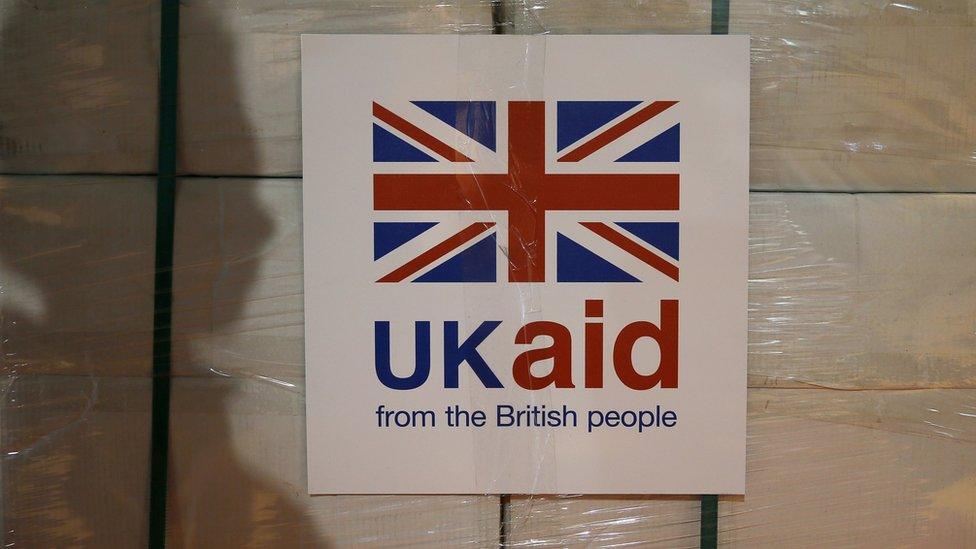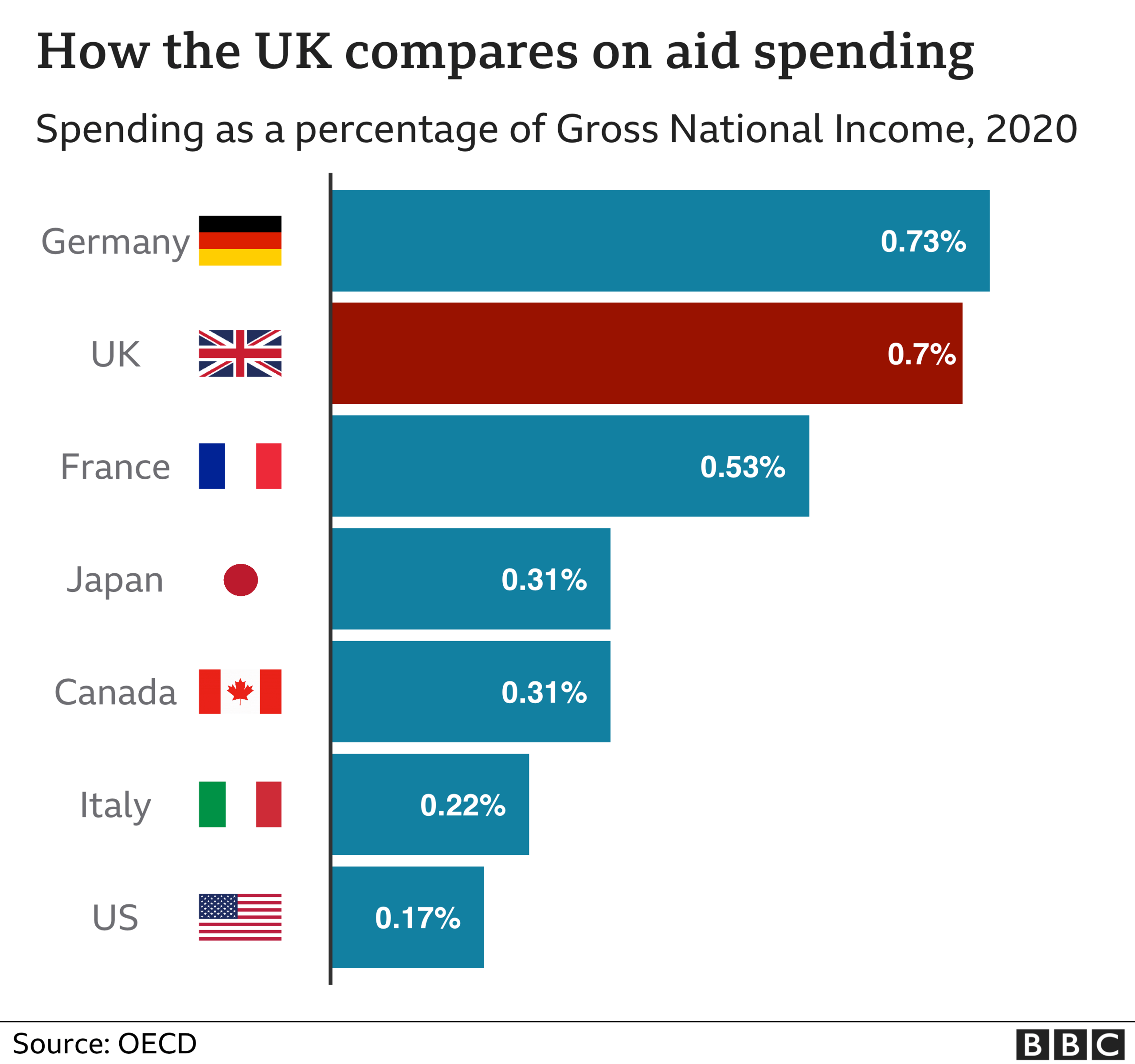Foreign aid: Government facing legal action over £4bn cuts
- Published

The government's £4bn cut to the foreign aid budget is facing a legal challenge from a UK-based charity.
Ministers reduced spending to 0.5% of national income this year, despite a legally binding target that fixes spending at 0.7%.
They argued the legislation allows the higher target to be missed in exceptional circumstances such as the Covid pandemic.
But some MPs and charities have argued a change in the law is required.
Earlier this week, MPs voted to back a government proposal to link future spending on aid to the state of public finances.
However, they have not yet been offered a vote on changing the legally binding target, enacted under the coalition government in 2015.
Sexual health charity International Planned Parenthood Federation (IPPF) has vowed to seek a judicial review of a £14.2m fall in government grants it is expecting over three years as a result of the cuts.
The charity, which has a presence in 142 countries and has its headquarters in London, has sent a pre-action letter to Foreign Secretary Dominic Raab, arguing the cut is unlawful if the legally binding target is not changed.
It will be up to a court to decide whether a judicial review goes ahead.
'Fighting injustice'
If it does go ahead and the government loses, ministers would either have to reverse the aid cuts or introduce new legislation, opening up the process to yet more challenge from MPs.
Dr Alvaro Bermejo, the IPPF's director-general, said the government's cuts would have a "catastrophic impact" around the world, and lead to "thousands of lives" being lost.
He added he was "disappointed" with the Commons vote earlier this week, arguing it would "introduce long lasting changes without going through due legislative process".
"This action is about fighting the injustice of the government's ruling on behalf of the women and girls we serve," he added.

Under the plan approved by MPs this week, the government has vowed to return aid spending to the 0.7% target when official forecasts show UK public debt is falling and it no longer has to borrow to cover day-to-day spending.
Prime Minister Boris Johnson has said it will allow the target - a Conservative manifesto pledge - to be regained in "an affordable way".
But critics have warned the plan could keep spending down for a number of years, if the UK takes longer than expected to recover from the pandemic.
Although MPs ultimately endorsed the plan at a vote on Tuesday, 25 Conservative MPs joined opposition parties in voting against it.
'World-leading' donor
The vote was offered as a compromise after a group of Conservative rebels unsuccessfully tried to reverse the cuts through a bill dealing with the UK's new research agency.
A spokesperson for the Foreign, Commonwealth and Development Office rejected the argument the cuts are unlawful.
They added the 2015 legislation "explicitly envisages" circumstances under which the government can fail to meet the 0.7% target, and despite this year's fall the UK remains a "world-leading aid donor".
They added that MPs had "voted clearly to approve" the government's plan for returning to the higher spending level.
- Published8 November 2021

- Published27 June 2021
